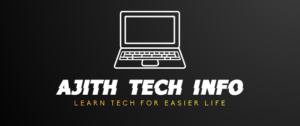Understanding Digital Marketing in Simple Terms
Digital marketing is the practice of promoting products or services through online platforms. Unlike traditional methods, it uses the internet to target potential customers. As a result, it helps brands grow faster with real-time performance tracking.
Moreover, it allows businesses to reach people across multiple devices—mobile, desktop, and tablets. Since more people spend time online today, this method has become essential.
Why Every Business Needs Digital Marketing
Today’s consumers search online before making a purchase. Therefore, brands must have a solid digital presence. Through various strategies, companies can engage users at different stages of the buying journey.
Furthermore, this form of marketing is cost-effective and scalable. Whether you are a startup or a large company, it gives equal opportunities to compete. In addition, you can measure results and adjust your strategy instantly.
Main Types of Digital Marketing
Search Engine Optimization (SEO)
First, SEO improves your website’s visibility in search engines like Google. By using keywords, meta tags, and backlinks, your site ranks higher. Consequently, it attracts more organic visitors without paying for ads.
Content Marketing
Content is king. Therefore, creating valuable content like blogs, videos, and infographics helps build trust. It not only educates your audience but also supports your SEO efforts. Additionally, great content boosts brand authority.
Social Media Marketing
Platforms like Facebook, Instagram, and LinkedIn help brands engage directly with customers. Besides building relationships, these platforms offer ad tools for better reach. As a result, businesses see faster growth and brand awareness.
Email Marketing
Email marketing is a powerful way to stay connected. It allows personalized messages that boost engagement and loyalty. Moreover, automated email flows save time and improve results.
Pay-Per-Click (PPC) Ads
PPC drives quick traffic. You only pay when users click your ads, making it highly efficient. Also, platforms like Google Ads offer advanced targeting. With the right strategy, PPC delivers instant leads and conversions.
Affiliate Marketing
Affiliate marketing uses third-party partners to promote your product. In return, they earn a commission per sale. Therefore, it’s a win-win approach that increases your reach with minimal cost.
Influencer Marketing
Influencers already have an engaged audience. When they promote your product, their followers trust it. Consequently, this boosts traffic, credibility, and conversions.
Top Benefits of Digital Marketing
- It offers measurable insights using analytics tools
- You can reach a global audience instantly
- It’s cost-effective compared to traditional media
- Personalization leads to higher conversions
- Campaigns can be adjusted in real-time
- Direct interaction improves brand loyalty
Essential Tools for Success
To run successful campaigns, use tools like:
- Google Analytics – for user insights and traffic data
- SEMrush – for SEO and keyword tracking
- Mailchimp – for automated email campaigns
- Hootsuite – to manage social media posts
- Canva – to create stunning graphics easily
Digital vs. Traditional Marketing
While traditional ads rely on TV or print, digital campaigns use online platforms. As a result, tracking performance becomes easier and more accurate. Most importantly, you can update and scale your campaign anytime.
Future Trends to Watch
Looking ahead, AI and automation will transform marketing further. Voice search, video content, and personalization are also gaining momentum. Therefore, staying updated is crucial for continued success.
How to Get Started
Start by setting clear goals. Next, identify your target audience. Then, choose the right channels like SEO, social media, or PPC. Additionally, focus on creating quality content that provides real value. Finally, track performance and optimize regularly.
Final Thoughts
Digital marketing is no longer optional. It’s the backbone of modern business success. With the right mix of strategies and tools, any brand can thrive. So, take the first step now—and let your online journey begin.
